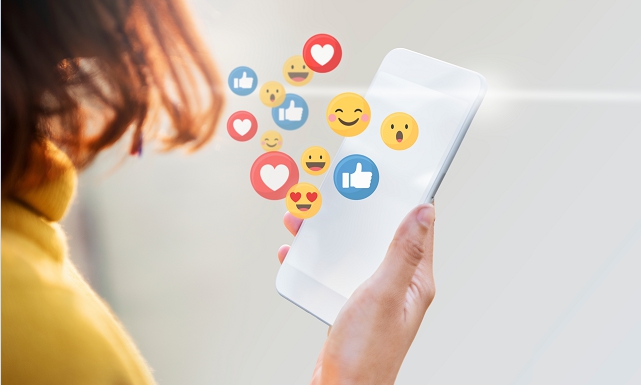
An Exploration of Language in the Digital Era
Social media platforms like TikTok and Instagram are reshaping how people communicate, from the words they use to the slang they adopt. Adam Aleksic’s TEDx talk, “How Social Media Is Changing How You Talk”, explores the influence of algorithms, viral trends, and cultural shifts on modern language.

Euphemisms for the Algorithm
Social media platforms often moderate content by flagging certain sensitive words, but users have found ways to adapt their language in order to avoid these penalties. An example discussed in Adam Aleksic’s TEDxPenn talk is the use of the word “unalive” instead of “die” or “kill.” The creation of these euphemisms bypasses these restrictions and allows users to express themselves while avoiding content removal.
Aleksic explained that these substitutions are not confined to online spaces and that they’re making their way into everyday conversation, demonstrating how technology and algorithms are influencing language on a larger scale.
The Spread of Slang Through Social Media
Slang has always evolved with culture, but social media platforms have accelerated the process dramatically, globally. Aleksic pointed out how terms like “Rizz,” a word for charisma, or “gyaat,” an expression for admiration, can go viral within days due to the influence of platforms like TikTok. The rapid spread of slang highlights how technology is redefining the pace and level of linguistic evolution, giving social media the title of “turbo-charged slang generator,” with its trends that can quickly reach millions of users in a matter of minutes.
Online Commercialization of Identity
Today, many people refer to certain aesthetics when describing themselves and others. Popular aesthetics like the “clean girl aesthetic,” the “Y2K aesthetic,” and the “coquette aesthetic” have been influencing and shaping online communities and real-world behaviors. Aleksic explored the rise of aesthetic labels, such as “cottagecore” or “dark academia,” which have become popular ways for users to define their personal style or interests online. While these labels help build communities and foster connections among users, Aleksic emphasized that they are also used by platforms to target users with personalized ads.
The use of language as both a form of self-expression and a data point raises questions about how personal identity is being shaped and used in the digital age.

Social media is changing the way we talk, making language evolve faster than ever. Platforms like TikTok, Instagram, and YouTube are where new words and phrases appear, and they quickly spread to everyday conversations globally. Words like “Rizz” or “unalive” are examples of terms that started online and are now part of how people talk in real life. This shows how much social media affects how we communicate.
As language changes, it’s important to recognize how quickly things spread. Social media can bring people together with new slang and trends, but it also makes us think about where these words come from and how their meanings might change over time. It’s not just about new words; social media also influences how people describe themselves with labels like the “clean girl aesthetic” or “cottagecore” and how they adjust their language to fit online spaces.
The way social media impacts language is clear, and as these changes continue to unfold, understanding the forces behind them helps us better navigate the evolving ways we communicate both online and offline. Social media is playing a bigger role in shaping the way people speak, and it will likely continue to grow as the digital era develops.
![]() <Kailyn Hahn Student Reporter>haneul24kh@gmail.com
<Kailyn Hahn Student Reporter>haneul24kh@gmail.com
Kailyn Hahn is a sophomore at Fairfax High School.






